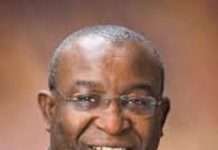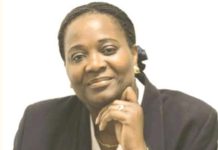In its 2015 description of Professor Adetokunbo Lucas, the World Health Organisation Bulletin said, “Few people have done so much to put health research for developing countries on the international agenda.” As fitting as that accolade was, it is at best an understatement in comparison to the phenomenal achievements, impacts and legacies of this legendary luminary of public health. In truth, Lucas was not just like any other kind of medic or public health expert – he was one with an uncommon zeal to go the farthest extent, make the most demanding sacrifice and overcome the most daunting challenges to ensure that the low-income populations of the world received the necessary attention and interventions on diseases that are peculiar to their regions.
Interestingly, as at the time Lucas was training to be a doctor, public health was not a popular field and many tropical diseases received little or no global attention. Worse still, in Nigeria, many doctors who had been trained in Britain had difficulty adapting to the situation in the country. The resources available and the diseases were different. They had studied in various areas but were not skilled in tackling tropical diseases.

Lucas himself had trained as a clinician, with specialisation in Internal Medicine. However, on seeing the rate at which many poor people in the country were dying of preventable diseases, he developed a philosophy that made him to ultimately decide not to be confined to the hospital setting like most of his contemporaries. In his words, “My question was: ‘Why be specialists in the resuscitation of the dead, if we can keep the living well?”
With this resolve of keeping the living well, Lucas spent more than 50 years of his life spearheading global public health advocacy and interventions, especially towards the neglected tropical diseases. Beginning with Nigeria, he helped to open up frontiers of knowledge and triggered wide-ranging transformations and policies that have helped to save the lives of millions of people. His four-dimensional strategy of research, leadership, mentorship and diplomacy made him to tower above his contemporaries and to achieve what many would have considered impossible.
The Harvard School of Public Health which benefitted immensely from his research, leadership and mentoring exploits, recently wrote about him thus: “Professor Lucas became known for scientific contributions achieved through his own research activities and for his extraordinary capacity to guide the research, thinking, and actions of others in countless international organisations and efforts. His scientific eminence resulted from his wide-ranging knowledge and insightful intellect, but also from his unimpeachable moral integrity, his deep source of wisdom on public health, and his capacity to communicate effectively across cultural boundaries. He was deeply committed to advancing health in the poor countries of the world, and made many important contributions to global health.”
Background and journey to the medical profession
Prof. Adetokunbo Olumide Oluwole Lucas was born on 25 November, 1931, into the distinguished family of Venerable (Dr) J. Olumide Lucas, the late Emeritus Archdeacon of Lagos Anglican Communion; and Mrs R. Ibironke Lucas, the daughter of Bishop Isaac Oluwole of Lagos. He had his secondary school education at Kings College Lagos from 1943 to 1948, where he came out with Grade one in the Cambridge School Certificate Examinations. In 1949, he proceeded to study Medicine at Durham University, Newcastle, graduating with honours in 1956.
After obtaining his first degree and qualifying to practise, Lucas went for his postgraduate training in Internal Medicine at Queens University in Belfast in 1957. In the course of the programme, he worked briefly at the department of Medicine in Belfast. After his programme, his mentor, Graham Bull, encouraged him to take an additional diploma in Public Health. He took the challenge and did excellently well.
Foray into public health practice
Lucas returned to Nigeria in 1960, and was soon employed at the University College Hospital, Ibadan, as senior registrar in the Department of Medicine. Not long after, the then vice-chancellor of the University of Ibadan, Prof. Kenneth Dike, informed him that the Department of Preventive and Social Medicine (Public Health) had become empty, following the departure of the three lecturers of the department (two expatriates and a Nigerian). The VC implored him to consider switching over to public health, so as to help sustain the department.
Lucas accepted the offer and lectured in the department from 1962 to 1976. Within three years, he was appointed as professor and head of the department at the age of 33. In this position, he built up the department from a one-staff department to a world-renowned department with 19 accomplished staff in various disciplines such as epidemiology, statistics and environmental medicine. He co-authored with Professor Herbert Giles, the internationally acclaimed textbook, “Textbook of Preventive Medicine for the Tropics” in 1976. The fourth edition which came out in 2003 was titled “Textbook of Public Medicine for the Tropics” and it sold over 220,000 copies worldwide. The book over the years has become “the Bible” of Public Health among Medical Practitioners.
During his time at University of Ibadan, Prof. Lucas became the pioneer head of the board of the Nigerian Medical Research Council (which later became Nigerian Institute of Medical Research) in 1973. He also hosted the first regional conference of the International Epidemiology Association (IEA) IEA in Ibadan, Nigeria in 1970 and went on to be the President of IEA from 1971 to 1974.
From local to global impact
In 1976, the World Health Organisation (WHO) appointed Lucas as pioneer director of its Tropical Disease Research (TDR) programme. He held this post till 1986 and during his ten-year stint, he developed a model approach for global networking among scientists, research laboratories and pharmaceutical firms. The TDR network was highly successful in developing new drugs for malaria, leprosy, African sleeping sickness, onchocerciasis and lymphatic filariasis.
From WHO, Lucas went to Carnegie Corporation where he worked from 1986 to 1990. From there he became the professor of International Medicine at Harvard University Boston, the USA from 1990 to 1995. Until his death, the professor was a leading consultant to many medical organissations and an adjunct Professor of Global Medicine at Harvard University Boston USA.
Awards and recognitions
In recognition of his massive contributions to advancing public health globally, Prof. Lucas has been widely recognised and honoured with numerous awards, medals, prizes, fellowships and honorary degrees. He had six honorary doctoral degrees from different universities in Nigeria and overseas (two in Nigeria, two in USA, and two in UK). He was a distinguished Fellow of Carter Centre in Atlanta Georgia in USA, where he participated in the various programmes which according helped in the eradication of diseases like smallpox, leprosy and guinea worm.
He also received the Mary Kingsley Medal of the Liverpool School of Tropical Medicine, the Harvard School of Public Health Alumni Award of Merit, and the Prince Mahidol Award for his global contributions to tropical disease. In the Royal Kingdom of Thailand, he got the Knighthood of the Most Admirable Order of Direkgunabhorn from the King of Thailand for his work on Public Health globally. He was the only African to have been so honoured up till now.
In Nigeria, he was a Fellow of Academy of Science (FAS) and he was the first Fellow of University of Ibadan (FUI). Most importantly, he was awarded as an Officer of the Federal Republic (OFR) for bringing honour to Nigeria and black race all over the world.
Professor Adetokunbo Lucas died on 25 December 2020 and left behind his wife, children and grandchildren.










